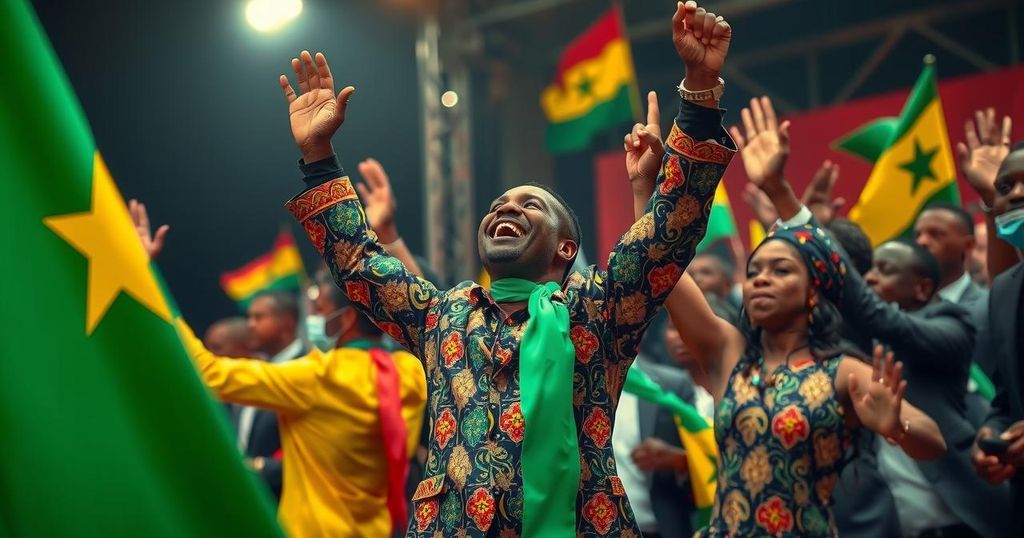Senegal Elections: Pastef Claims Significant Victory, Paving Way for Reforms

Senegal’s ruling party, Pastef, has claimed a major victory in legislative elections, providing President Faye with a mandate to implement reforms. Opposition leaders have conceded defeat amid allegations of electoral fraud from former President Macky Sall. While the elections were largely peaceful, challenges remain as the new government seeks to address high unemployment and economic instability.
The Senegalese government has proclaimed a significant victory for the ruling party, Pastef, in the recent parliamentary elections. With most votes counted, government officials indicated that Pastef secured a “large majority,” providing President Bassirou Diomaye Faye with a strong mandate for the implementation of his ambitious economic and social reforms. Key opposition figures, including former Prime Minister Amadou Ba, have acknowledged defeat amid ongoing vote counting. While official results are anticipated shortly, initial reports highlighted a peaceful electoral process permeated by minor altercations among party supporters prior to the election. Pastef’s success would endow President Faye, who has faced challenges in advancing his legislative agenda in an opposition-majority parliament, with vital support to pursue his proposed reforms. Faye’s administration prioritizes economic improvement, social equity, and a rigorous stance against corruption—policies that resonate with the youth of Senegal. The elections, conducted on a Sunday, were heralded as peaceful overall, notwithstanding some confrontations. Despite the proclaimed victory, former President Macky Sall, who now leads an opposition coalition from abroad, accused Pastef of orchestrating widespread electoral fraud without providing detailed evidence. The outcome of these elections holds significance as it could reshape Senegal’s political landscape, strengthen the current government, and enable the ruling party to advance a program focused on national identity and reformation in its external relations, particularly with France—the former colonial power. As Senegal navigates challenges such as unemployment and fiscal instability, the success of Pastef positions the government to address these pressing issues while furthering their radical reform agenda, which seeks to redefine the nation’s socio-political dynamics.
The political arena in Senegal saw a pivotal moment with the recent parliamentary elections, presenting an opportunity for significant governance changes. President Bassirou Diomaye Faye, a leader committed to reform, has faced difficulties enacting his vision in a parliament previously dominated by opposition voices. This election, characterized by its peaceful execution amidst minor disruptions, reflects a critical engagement of Senegalese citizens in shaping their government’s trajectory. The claims of fraud from opposition leaders add a layer of complexity to the political discourse, suggesting potential disputes ahead in the wake of the results.
In conclusion, the Senegalese parliamentary elections have positioned Pastef as a predominant force in the nation’s governance. The ruling party’s reported victory provides President Faye with the mandate necessary to implement his reform agenda, reflecting the public’s call for change. However, opposition claims of electoral malpractice may challenge the legitimacy of the outcome and create friction in Senegal’s political discourse moving forward. The success of this administration will depend on its ability to address socio-economic challenges while navigating a politically charged climate.
Original Source: www.bbc.com







